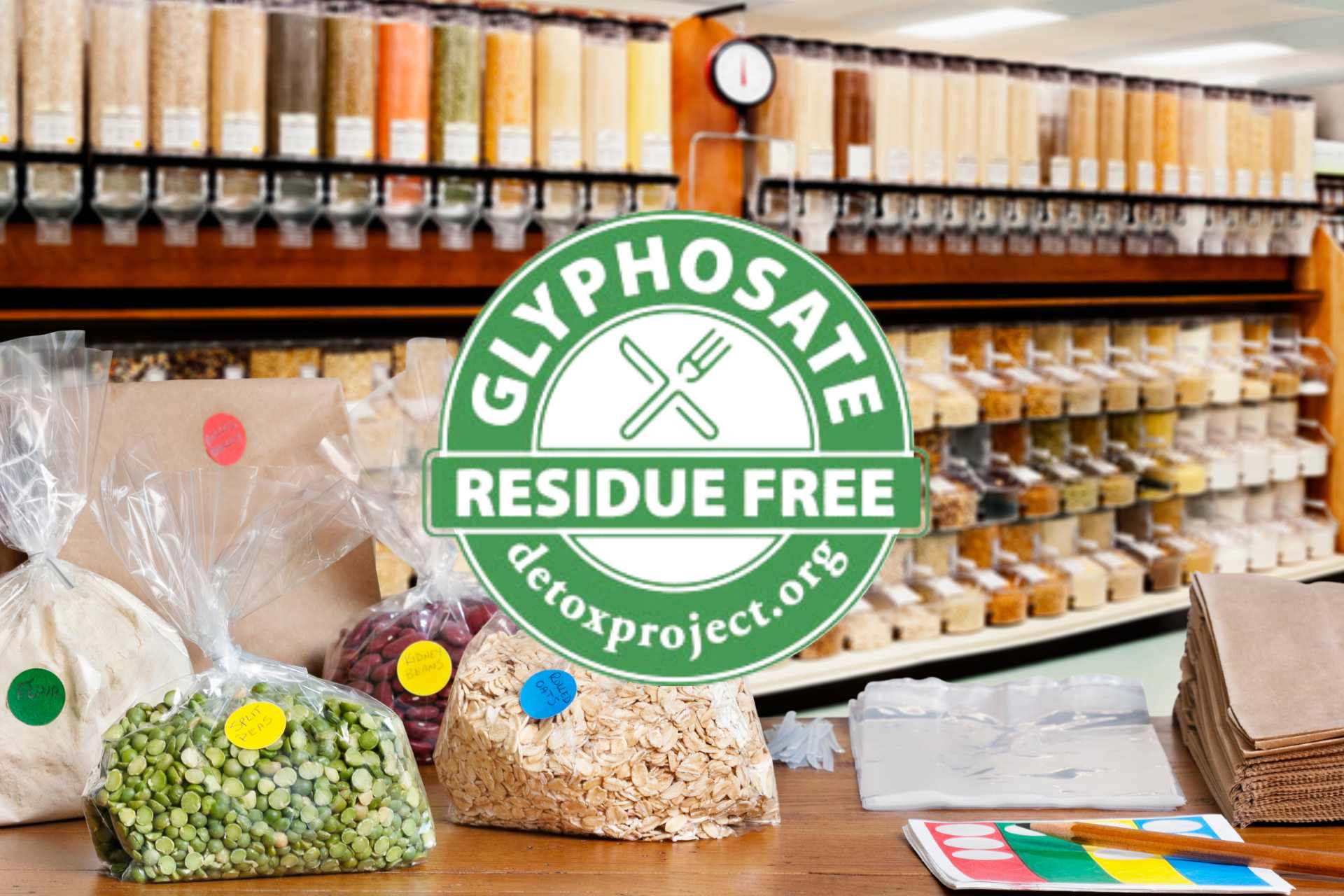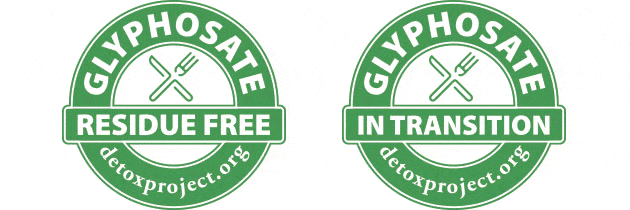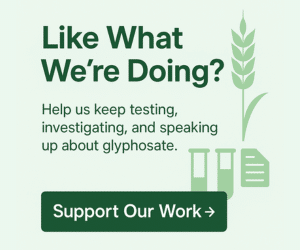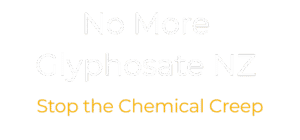More and more shoppers are looking past the organic label — not because they don’t care, but because they want proof.
Glyphosate-free certification is stepping in to fill the trust gap, offering something organic can’t: lab-tested assurance that a product is residue-free.
For years, “organic” stood as the gold standard for clean, honest food. But cracks have started to show — from allowed pesticide exceptions to global supply chain loopholes. Consumers are paying attention, and many are starting to ask: Can we trust organic the way we used to?
The Detox Project is a certification platform promoting transparency around toxic chemicals in food and supplements. It’s simple. It’s specific. And it’s growing fast.
A Market Built on Distrust
A recent update from The Detox Project revealed that the GRF market has already surpassed USD $800 million in certified product sales worldwide. Over 70,000 individual products now carry the label, representing more than 150 brands across food, supplements, pet food, textiles, and personal care.
This isn’t just niche wellness marketing anymore. It’s a sign of something deeper: a public shift away from generalized assumptions and toward targeted, testable claims.
Because when it comes to glyphosate—the world’s most widely used weedkiller—“organic” doesn’t always mean “free from.” In fact, contamination can occur through water, soil drift, cross-border imports, or legacy residues, even in certified organic products.
So the question becomes:
If consumers want assurance that a product is truly free from glyphosate, is the organic label enough?
For a growing number of people, the answer is no.
Testing Builds Trust—Because Labels Alone Don’t
Unlike organic certification, which is based largely on farming practices, GRF certification is based on end-product testing. That means the label can only be earned if no detectable glyphosate residue is found at or below strict laboratory thresholds—usually less than 10 parts per billion (ppb). (That’s like 10 drops of glyphosate in an Olympic-sized swimming pool.)
It’s a direct response to a critical gap:
Regulators don’t test for glyphosate in most food. But consumers still want to know.
And that’s where GRF certification fills the void. It doesn’t make broad promises about how something was grown—it tells you what’s actually in the package.
For companies willing to go the extra mile, it’s becoming a brand advantage. For shoppers, it’s a simple shortcut to avoid a chemical many believe has no place in their food, their home, or their bodies.
Honey Joins the Certified Clean Label Club
It’s not just cereal, snacks, or supplements making the shift. Honey exporters have started securing Glyphosate Residue Free certification too, especially in New Zealand where the Manuka honey industry is tightly tied to international markets.
- Wedderspoon, a major Manuka honey brand based in New Zealand, now carries GRF certification across its full honey range.
- New Zealand Honey Co, tests every batch and publishes glyphosate “not detected” results online.
- Midlands Apiaries, a large-scale NZ honey exporter, offers glyphosate-free certified Manuka honey to meet buyer expectations abroad.
These companies aren’t waiting for government mandates—they’re acting on market demand. And they’re doing it through measurable transparency.
Could This Catch On in New Zealand?
New Zealand has yet to widely adopt GRF certification, but the momentum is already building.
Some local companies, like Boring® Oat Milk, are testing their products for glyphosate and publishing the results. Others, like Harraways oats, have established strict glyphosate-free growing protocols and export standards—but aren’t yet using a formal certification label domestically.
Which raises the question:
If U.S. and EU markets are demanding certified glyphosate-free products, why aren’t more New Zealand brands leading the charge?
With the EU banning glyphosate as a pre-harvest desiccant and international testing efforts increasing, New Zealand exporters who lag behind may soon find themselves playing catch-up.
And for local consumers, the lack of certified options makes one thing clear:
If we want glyphosate-free products on our shelves, we’re going to have to ask for them.
Why This Matters for More Than Just Marketing
It’s not just about preferences. It’s about protection.
New Zealand’s Ministry for Primary Industries (MPI) has proposed raising allowable glyphosate residue levels on some foods—despite public concern and minimal up-to-date monitoring. In the absence of rigorous government testing or enforced transparency, certification is becoming a form of self-defense.
Certifications like GRF are a grassroots response to institutional silence.
They’re also a challenge to the industry:
If your product is truly clean, prove it.
And if it isn’t, why should we keep buying it?
Final Thought
Organic still matters—but it’s no longer the final word. Glyphosate Residue Free certification represents a shift in public consciousness: from trusting systems to trusting data. From vague assurances to specific testing.
At No More Glyphosate NZ, we’re not just watching this shift. We’re helping drive it. That’s why we’ve launched our own community testing initiative—starting with New Zealand honey and expanding to breakfast cereals and beyond.
Because glyphosate-free shouldn’t be a marketing slogan. It should be a measurable reality.
Resources & References
The Detox Project – Glyphosate Residue Free Certification Update (2024)
https://detoxproject.org/glyphosate-residue-free-certification-market-reaches-usd-800-million-as-consumers-demand-transparency/
An overview of market growth, certification standards, and global brand adoption.
MPI’s Missing Data: Why We Can’t Trust the Glyphosate Reassurance
https://nomoreglyphosate.nz/mpis-missing-data/
A closer look at New Zealand’s lack of food residue testing and why the proposed MRL increases are based on outdated assumptions.
From Gluten-Free to Glyphosate-Free: Is It Time We Changed the Label?
https://nomoreglyphosate.nz/from-gluten-free-to-glyphosate-free/
Explores how glyphosate, not gluten, may be the real reason behind rising food sensitivities—and why new labeling standards are overdue.
Editorial Note:
This article is for informational purposes only. No More Glyphosate NZ is not affiliated with or endorsed by The Detox Project. References to their certification program are included solely to inform the public about emerging trends in food transparency.
Image Source & Attribution
The image on this page was created using canva.com.





